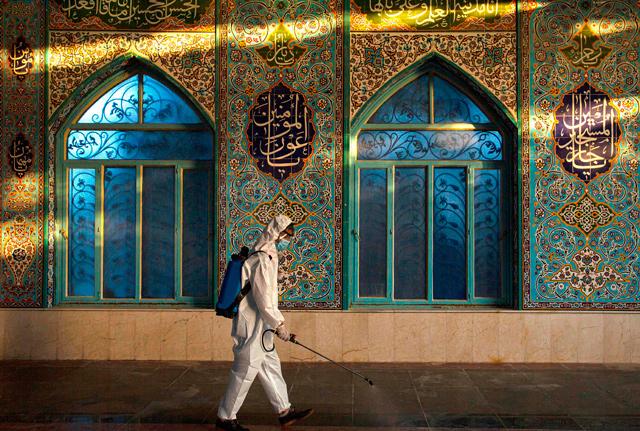- International News
- Sun-2020-08-23 | 03:31 pm

According to the Iraqi health ministry, 201,050 Iraqis have contracted the virus, including 6,353 who have died, while 143,393 are declared to have recovered since the pandemic began.
The daily increases have hovered around 4,000 for more than a week, but authorities have declined to reimpose a strict lockdown that was lifted earlier this summer.
An overnight curfew remains in place, most restaurants are closed for dine-in customers and land crossings are officially shut.
But airports, supermarkets and take-out cafes are open, with varying degrees of social distancing or mask-wearing.
Many fear yet another spike in cases is imminent, as Shiite Muslims converge on the holy city of Karbala to commemorate the beginning of the mourning month of Muharram.
Muharram, which includes the memorial of the killing of the Prophet Mohammed's grandson Hussein in 680AD, is typically marked by mass funeral processions and self-flagellation.
It usually sees thousands of pilgrims cross the border from neighbouring Iran, which has suffered the largest mortality figure from COVID-19 infections in the Middle East, with more than 20,200 deaths officially registered.
Iraq's hospitals have already been worn down by decades of conflict and poor investment, with shortages in medicines, hospital beds and even protective equipment for doctors.













